Students Abroad: Trip to India Reflects on Cary
Story and photos by Jamie Berger, an undergraduate at UNC Chapel Hill from Cary, NC.
Cary, NC – Approximately one-third the size of the United States, but home to about 17% of the world’s population, India is best described as a country of extremes. Characterized by infinite diversity and cultural abundance, India is a place of both extravagant wealth and unimaginable poverty. Its vast history has been shaped by the cruelest tyranny and the very essence of peace, and today it stands at the fascinating confluence of countless ancient traditions and the West’s globalizing modernity.
Not in Cary Anymore
In almost all respects, Cary, North Carolina—my hometown—is perhaps more unlike India than any other place.
Before I went to India I saw Cary as nothing more than a sterile, culturally-devoid, homogenous cluster of cookie-cutter homes and parking lots—the epitome of the American suburb.
Like many naïve Westerners who travel to Asia, I was drawn to India by its exoticness—and, perhaps, by my desire to make my dream of eating Indian food daily a reality. Aside from previous travels to Western Europe and Australia, I had never before challenged myself to become immersed in cultures so different from my own.
Rickshaws and Chana Masala
On a little more than a whim, therefore, and with thoughts of rickshaws, squat toilets, and chana masala, I applied to study abroad.
I chose UNC’s Summer in India Program, a six-week excursion to the northern Indian cities of New Delhi, Haridwar, Rishikesh, Aligarh, Agra, and Jaipur. The faculty-led program involved two courses: Introduction to Hindi and Indian Literature and Culture.
A generous Phillips Ambassadors scholarship award solidified my decision to go.
Sensory Overload
When I first arrived in New Delhi I was struck by the thick, acrid air pollution, an oppressive veil of particulate-laden haze that blurred the sun and greyed the whole city.
I was further driven into sensory overload during one of my first outings to a market; I followed my group like a dazed small child, unable to process the immense amount of activity occurring around me. The narrow streets swarmed with people, animals (goats, dogs, buffalo), cars, motorcycles, rickshaws, carts, and bikes.
While my senses eventually equilibrated around a new norm of heightened sounds and sights, I remained vigilant. Along with my gender, my light skin and tall stature provoked stares and, sometimes, more unwelcome attention.
Making Sense of It All
But the physical challenges I encountered—including the infamous so-called “Delhi Belly”—were far less overwhelming than the emotional and intellectual ones I experienced.
I learned that caste goes far deeper than a last name, and gender roles go far beyond the physical attributes that confine us to our sex. I witnessed the heartbreaking symptoms of a country still reeling from the impacts of colonialism and, now, neo-colonialism in the form of globalization.
In my homestay, I savored the very best chana masala and confronted the reality that is life for most of the world’s citizens.
There’s No Place Like Home
I also came to appreciate my own home more than ever. Cary’s benign quietness would have been the perfect antidote to India’s endless chaos. I found myself craving my hometown’s rolling, manicured lawns, the pristine air, and the expansive room to breathe it.
It wasn’t homesickness per say, but a new understanding of why the American Dream—and Cary, its near-perfect embodiment—appeals to almost everyone in the world.

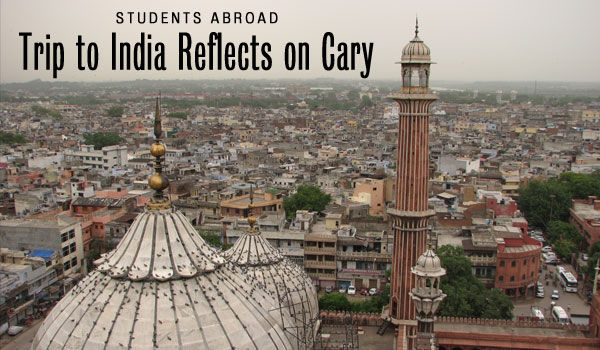
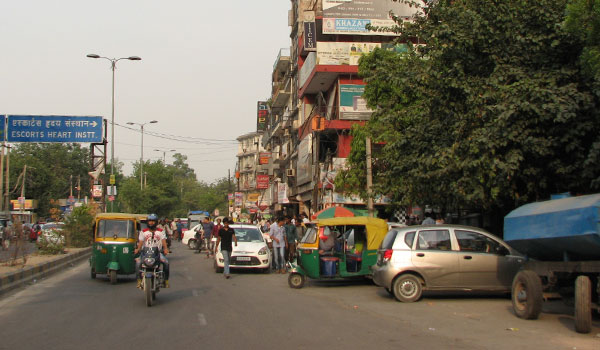
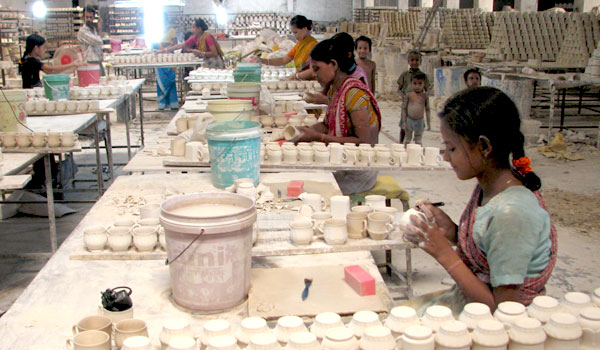
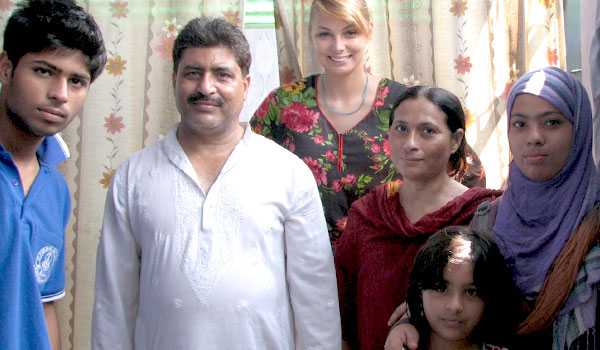
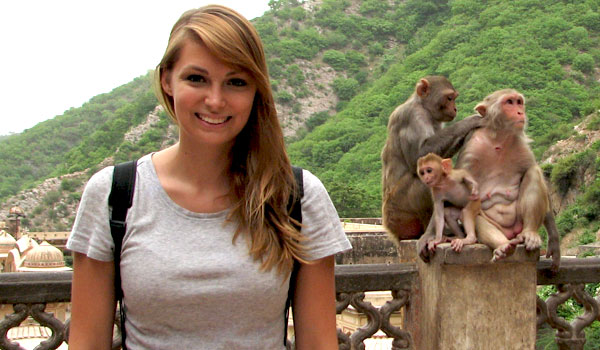


This was a wonderfully written narrative. Only because I’m the unofficial CaryCitizen proofreader, I’ll note that for future reference, the article’s phrase “per say” actually should be a Latin pharase “per se” (the same root from which “ampersand” comes, meaning “in and of itself”).
Nitpicking aside, I felt like I was there. Great article Jamie!
Jamie, Thank you for sharing your experiences. The process of travel and immersion in other cultures does make us reflect on our own home and culture and helps us to determine what makes us unique. This is especially so when you visit a culture that is very different from our own.
Mutual understanding of cultures is important and is the purpose of many organizations like:
People to People International
http://peopletopeople.com/
Sister Cities International
http://www.sister-cities.org/
International Affairs Council of NC
http://www.iacnc.org/
Cary has a vibrant sister cities organization with 4 sister cities and several more being developed
http://sistercitiesofcary.org/
There are many ways to expand your cultural horizons. Travel may be the best way, but there are many options for those not able to travel.
Ian Henshaw
Treasurer, Sister Cities Association of Cary
Great reporting Jamie. It often takes this kind of cultural slap in the face to realize just how truly fortunate we are.
To each his own thing. I accept the fact and understand that you would prefer living in Cary over living in India. Most people in the world might prefer that. After all thats the difference between a developing country and a developed country.
Your priorities/mindset needs to be different if you want to understand and appreciate what India is about.
India is a country about multiple/radical ideas trying to spawn (in addition to diversity and differences). Its a country where almost all the values that you hold near and dear are questioned.
Its a country where the philosophers thought the only way to true happiness is detachment and renunciation from worldly pleasures of all sorts. Its also a country where some philosophers thought the only way to true happiness is via hedonistic practices including tantra.
Its a country where multiple religions/ideas have coexisted (unlike the homogeneous nature of the west).
Its a country where the cuisine changes every few hundred miles.
If you are going to India to find whats in Cary, you wont find it.